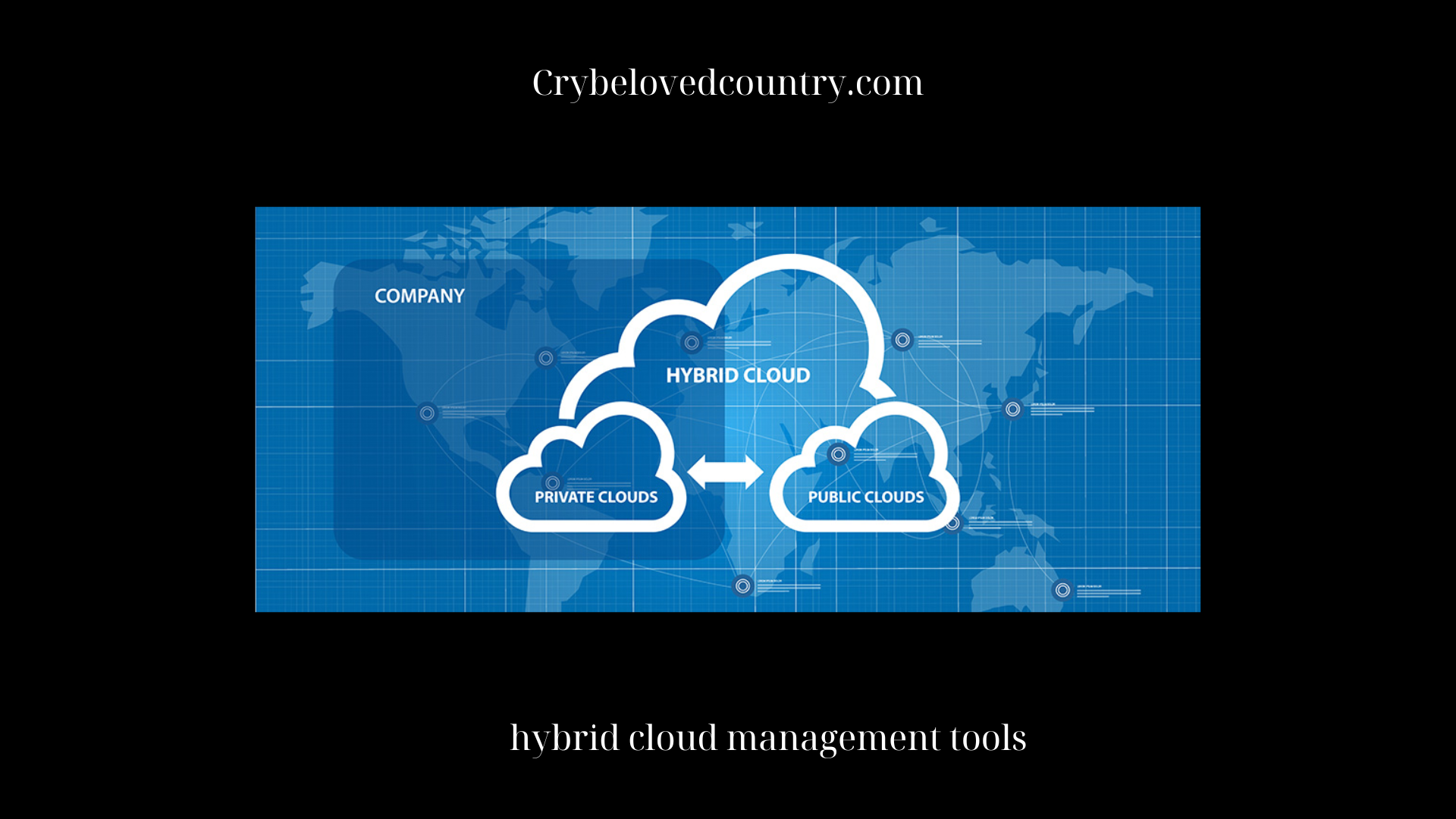In today’s digital landscape, businesses are increasingly adopting hybrid cloud environments to leverage the benefits of both public and private clouds. However, managing these complex infrastructures can be challenging without the right tools in place. In this article, Crybelovedcountry will explore the world of hybrid cloud management tools, their significance in maximizing efficiency and control, and how they help businesses effectively manage their hybrid cloud deployments. By the end, you’ll have a comprehensive understanding of the importance of these tools and how they can empower organizations in their cloud journey.
Hybrid Cloud Management Tools: Maximizing Efficiency and Control
![]()
- Understanding Hybrid Cloud Environments:
Before diving into the realm of hybrid cloud management tools, it’s crucial to grasp the concept of hybrid cloud environments. A hybrid cloud combines the use of public and private clouds, allowing organizations to take advantage of the scalability and flexibility of public clouds while maintaining control over sensitive data and applications within private clouds. This hybrid approach provides businesses with a versatile infrastructure that can adapt to their specific needs and workloads. - The Complexity of Hybrid Cloud Management:
Managing a hybrid cloud environment involves dealing with various challenges, including resource allocation, workload distribution, security, and data integration. As the hybrid cloud landscape evolves, organizations must adopt efficient management strategies to harness its full potential. This is where hybrid cloud management tools come into play, offering solutions to streamline operations, enhance control, and optimize performance. - Key Features and Capabilities of Hybrid Cloud Management Tools:
Hybrid cloud management tools offer a range of features and capabilities designed to address the unique requirements of hybrid cloud environments. These tools provide centralized control, allowing businesses to monitor and manage their cloud resources from a single interface. They enable workload orchestration, ensuring efficient distribution across different cloud platforms. Furthermore, they facilitate seamless data integration, security management, and cost optimization. - Maximizing Efficiency with Automation:
One of the primary benefits of hybrid cloud management tools is their ability to automate routine tasks and processes. Automation eliminates manual intervention, reduces the risk of human error, and accelerates operational efficiency. These tools enable organizations to provision resources, scale workloads, and manage deployments seamlessly, leading to improved productivity and time savings. - Enhancing Control and Governance:
Hybrid cloud management tools provide organizations with granular control and governance over their cloud resources. They offer robust access controls, identity management, and security policies to safeguard sensitive data and applications. These tools also enable organizations to enforce compliance standards, track usage, and generate comprehensive reports for auditing purposes. By enhancing control and governance, businesses can mitigate risks and ensure regulatory compliance. - Optimizing Performance and Scalability:
Efficient resource utilization and workload optimization are critical factors in maximizing the performance of hybrid cloud environments. Hybrid cloud management tools provide real-time insights into resource usage, performance metrics, and application behavior. This data empowers organizations to make informed decisions, allocate resources effectively, and scale workloads based on demand. As a result, businesses can achieve high availability, improved response times, and optimal performance across their hybrid cloud infrastructure.

- Cost Optimization and Financial Management:
Managing costs is a key consideration for organizations operating in hybrid cloud environments. Hybrid cloud management tools offer features for cost optimization and financial management. These tools provide visibility into cloud spending, enabling businesses to monitor and control costs effectively. They offer cost analysis, budgeting, and forecasting capabilities to optimize resource allocation, identify cost-saving opportunities, and align cloud spending with business goals. - Integration and Interoperability:
Seamless integration between public and private clouds is essential in hybrid cloud environments. Hybrid cloud management tools help organizations achieve interoperability by providing integration frameworks, APIs, and connectors. These tools facilitate data synchronization, application deployment, and workload mobility across different cloud platforms. By ensuring smooth integration, businesses can leverage the strengths of various cloud providers and maximize the value of their hybrid cloud investments. - Choosing the Right Hybrid Cloud Management Tools:
Selecting the appropriate hybrid cloud management tools is crucial for organizations seeking to optimize their hybrid cloud deployments. Factors to consider include ease of use, scalability, compatibility with existing infrastructure, security features, and vendor support. It is important to evaluate different tools, compare their functionalities, and assess how well they align with specific business requirements and objectives. - Future Trends and Conclusion:
As hybrid cloud adoption continues to grow, the landscape of hybrid cloud management tools is evolving rapidly. Emerging trends such as artificial intelligence (AI)-powered analytics, machine learning, and predictive capabilities are reshaping the capabilities of these tools. Organizations should stay informed about the latest advancements and consider how these tools can further enhance their hybrid cloud management strategies.

- In conclusion, Hybrid Cloud Management Tools Maximizing Efficiency and Control play a vital role in maximizing efficiency and control in hybrid cloud environments, enabling organizations to leverage the full potential of their hybrid cloud deployments and achieve their business objectives effectively.
